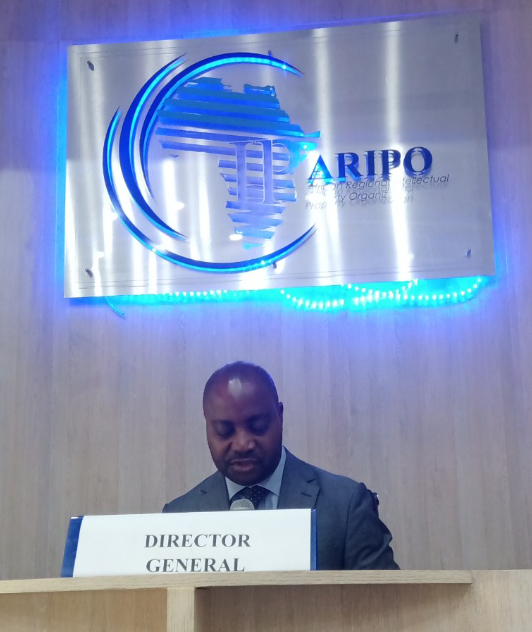Mr Fernando dos Santos, the Director-General of the African Regional Intellectual Property Organisation (ARIPO) joined other luminaries in the Top 50 Most Influential IP Authorities by the Managing Intellectual Property Organisation.
The African Regional Intellectual Property Organization (ARIPO) has made great strides towards its goal of becoming a paperless office. According to director general Fernando dos Santos, the office is now offering online services 24/7, and in 2019, 94% of patent applications were filed online.
He highlights the historic agreement between ARIPO, WIPO and Africa’s other major regional IP office, the Organisation Africaine de la Propriété Intellectuelle, to promote cooperation and technical assistance.
Although the agreement was signed in October 2018, its impact has been felt in 2019. The three offices also hosted a dedicated conference in Harare, Zimbabwe, in November, where 45 countries adopted the “Action Plan on Intellectual Property, Innovation and Value Addition for Business Competitiveness and Sustainable Development in Africa”.
Earlier in the year, the “Nairobi Strategic Plan for the Development of Copyright and Related Rights in Africa” was similarly approved. This year also saw dos Santos conduct successful negotiations with the Seychelles, which will become ARIPO’s 20th member state pending approval by its parliament. Dos Santos, who has been interviewed by Managing IP in the past, is in his second four-year term as director general; his tenure expires in December 2020.
Johanne Bélisle, the Chief Executive Officer of the Canadian Intellectual Property Office (CIPO) is one of the eight recognised IP authorities who has overseen several changes that came into effect in 2019. For example, trademark applicants no longer need to declare use when they file. This has the potential to make filing less burdensome for applicants, though some worry that it could embolden “trademark trolls” or those seeking to obtain rights to a mark that they have no intention of using.
Canada is also recognising non-traditional marks like colours, scents, holograms and taste. Additionally, the new rules allow letters of protest during examination. Changes on the patent side also came through this year. For example, Canada implemented 24/7/365 filing, allowing an applicant to secure a filing date even when the patent office is closed. The deadline to request examination has been shortened from five years to four from the filing date. During Bélisle’s tenure, the country has taken steps to better connect to the international IP community. In 2019, Canada became a member of the Madrid System, the Nice Agreement and the Singapore Treaty. In 2018, the country joined the Hague System.
Mary Boney Denison, commissioner for trademarks at the United States Patent and Trademark Office (USPTO); Elizabeth Carroll, chief legal counsel, IP Australia; Charles Gore, executive director, Medicines Patent Pool; Andrei Iancu, director of USPTO; Daren Tang, CEO, IPOS; and Cláudio Vilar Furtado, president, INPI complete the list of the IP authorities.






